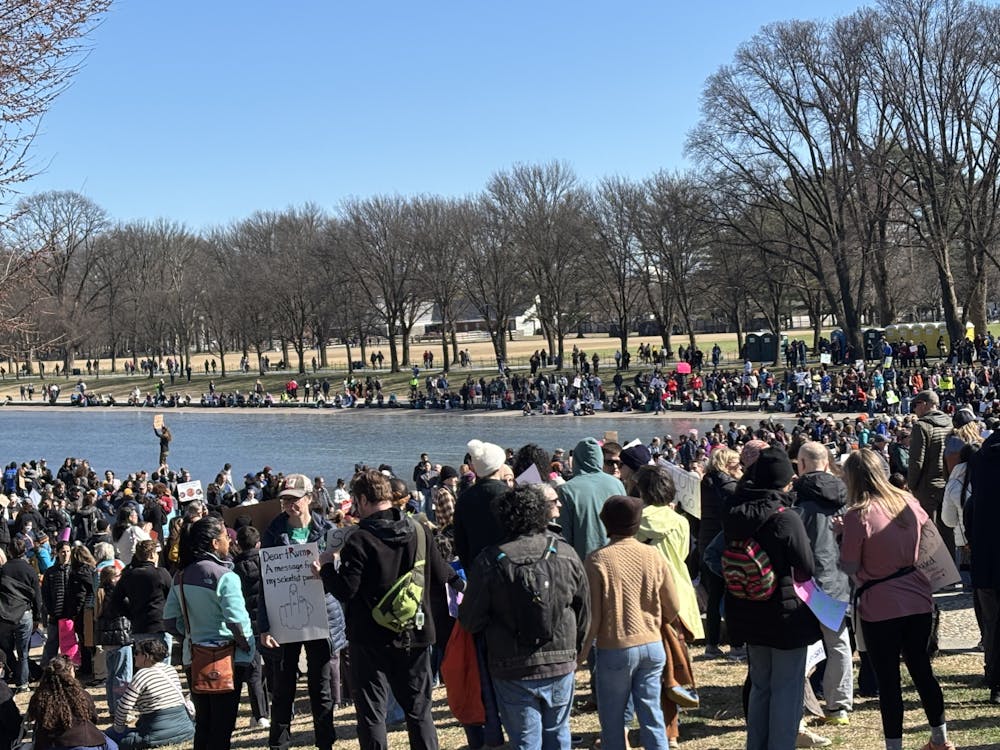The debate over the U.S. military’s use of drones has been heating up in the media and on campus for some time now. In a recent panel held in Mergenthaler Hall, experts discussed the hot-button topic and specifically Hopkins’ involvement in classified drone research.
The event, hosted by the Hopkins Human Rights Working Group (HRWG), was co-sponsored by Amnesty International, the Graduate Representative Organization, the Departments of Anthropology and Political Science, the Arab Students’ Organization and Students for Environmental Action.
The two guest experts on the panel were James Cavallaro, the director of the International Human Rights and Conflict Resolution Clinic at Stanford Law School, and Omar Shakir, also of Stanford Law School. Both were co-authors of the recent Stanford and New York University (NYU) study titled “Living Under Drones.” Results of the study drew from interviews of about 130 Pakistanis directly and indirectly involved in drone attacks.
Lauren Wilcox, a post-doctoral fellow in the Political Science Department, joined the panel as an expert on Hopkins’ involvement in drone research as well as the effects of drones on warfare in general.
The Stanford/NYU study concluded that civilians are commonly among the dead after drone strikes in Pakistan, a claim that counters the U.S. government’s assertion of few to no civilian casualties.
Furthermore, based on interviews with Pakistanis from the FATA region, the researchers concluded that drones are causing widespread cases of extreme anxiety and breakdowns in community communications and cultures. The interviews showed that people were afraid to send their children to school or to meet in groups because they never knew when or why the drones might attack.
“The dominant narrative at the time we were asked to do this research, at least in Western media and in the United States, was of a precision device capable of identifying and targeting and killing terrorists with minimal or zero collateral damage. We, and many others, have been trying to push back on that narrative based on what we’ve been able to document,” Cavallaro said during the discussion.
Willy Blomme, a representative from the HRWG, explained the purpose of the event during the panel discussion. “[We wanted to] raise awareness and foster discussion about drones here on campus and in the broader Baltimore community. We are concerned about the deep involvement of the University’s Applied Physics Laboratory in the development of military and surveillance drones, and about the lack of awareness on campus about this research.”
Blomme further explained the group’s worry. “Drones are lowering the threshold for war and leading the way to a new type of warfare in which most of the killing will be done by remote control.”
Another common thread during the panel discussion was the legality, or illegality, of the U.S. military’s use of drones in countries like Pakistan, Somalia, and Yemen where the U.S. is not officially at war. The panelist were firmly of the opinion that since the U.S. is not at war with these countries, they do not have the legal right to use deadly force in drone attacks, and that these attacks are a violation of international law.
Cavallaro and Shakir went on to explain what they learned during their time in Pakistan. A particularly disturbing story involved the U.S. military’s use of double-tapping during drone strikes, a tactic where first responders on the scene after an attack (including medical workers) were also targeted and killed because they were associated with the suspected terrorists they were trying to help.
The HRWG is not only worried about the military uses of drones, but also about civilian uses of drones for surveillance. A handout released at the event by the HRWG stated: “The use of drones to conduct wide surveillance and police the population violates our right to privacy and can easily be abused by the government.”
After the panelists were done with their presentations, members of the audience were able to participate in a question and answer session, and many went on extended diatribes supporting their views for or against drones. The conversation got quite heated at points and the audience was quick to show their disapproval of those that held viewpoints in conflict with those of the HRWG. The event fostered a real discussion of drone strikes and raised the level of awareness on campus regarding Hopkins’ involvement in drone research.
















